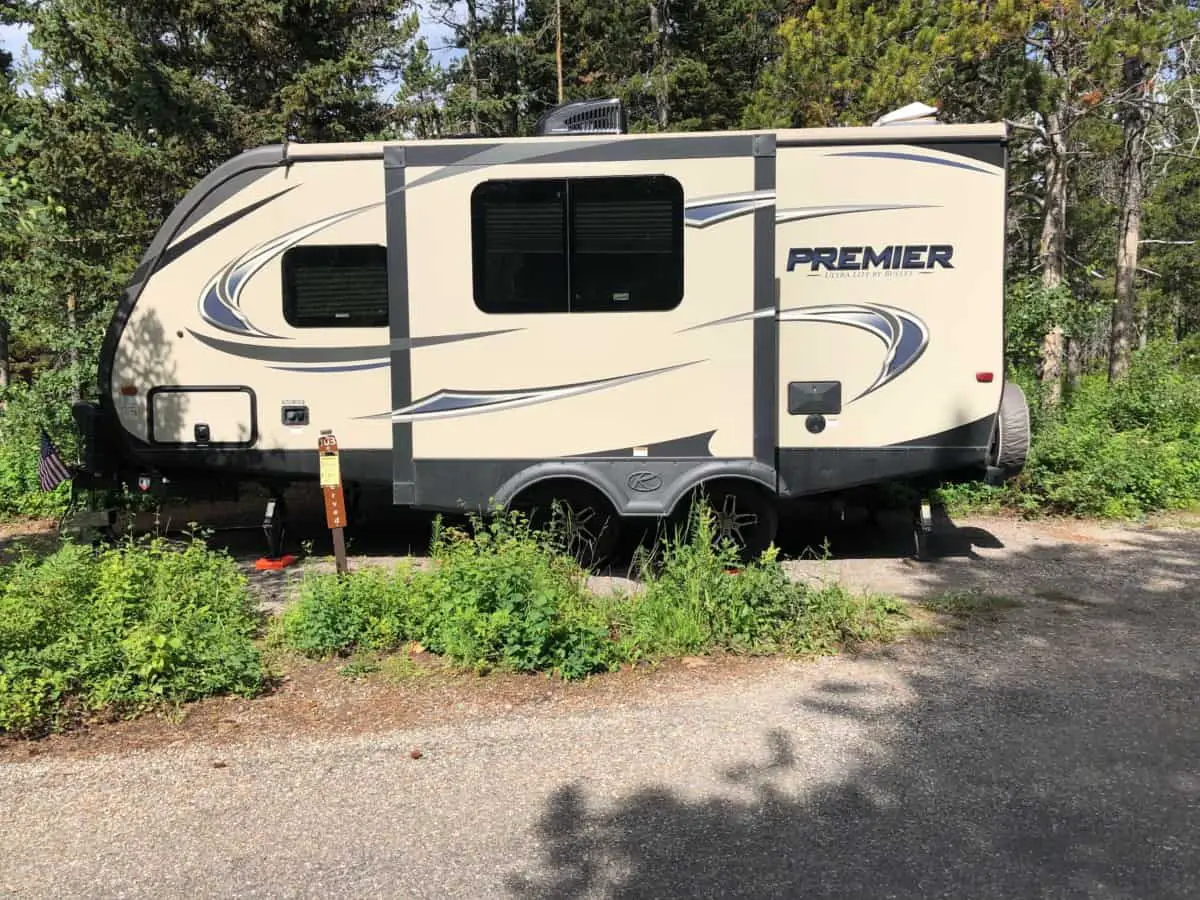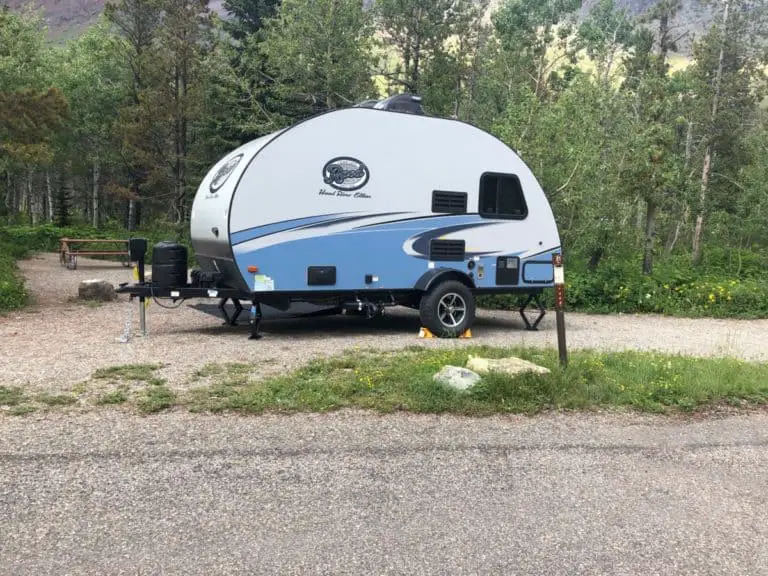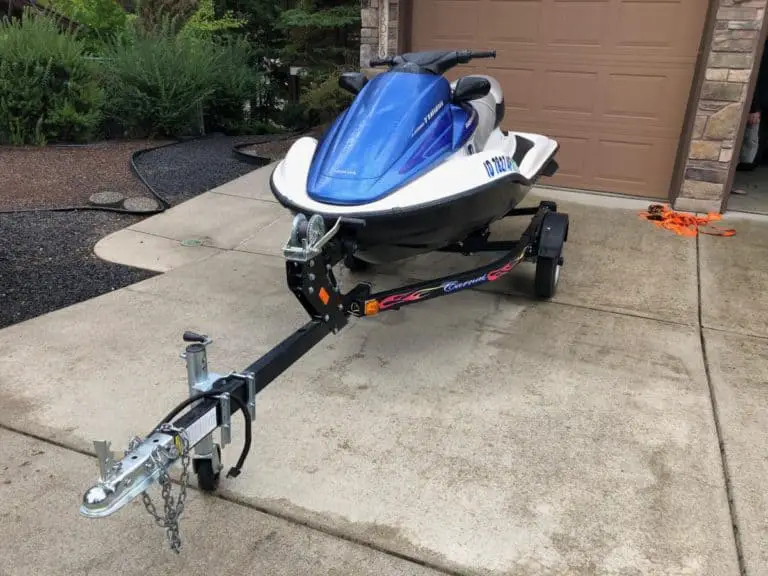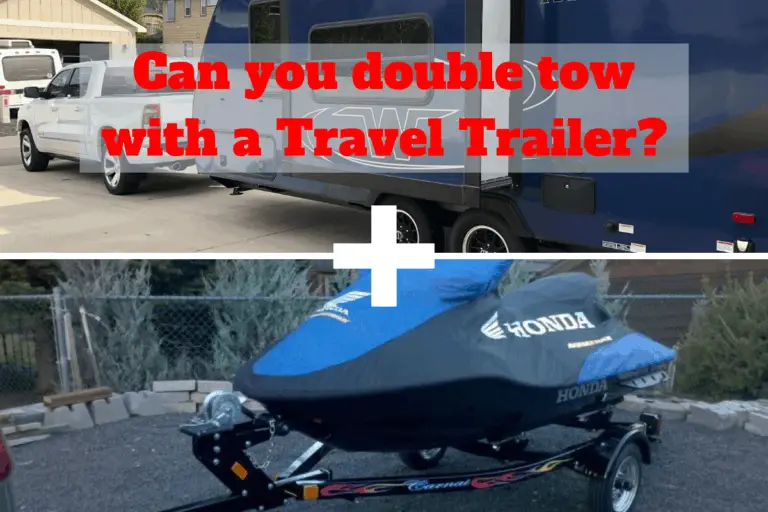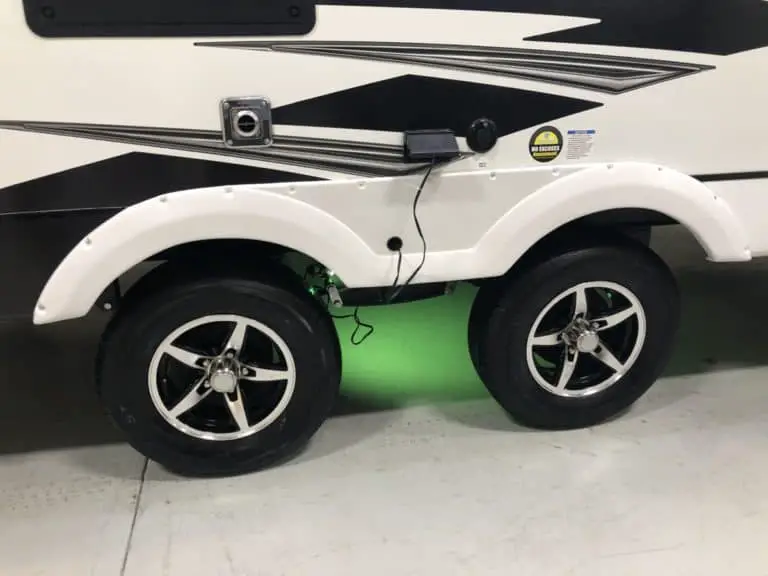Do Travel Trailers have Titles, VINS, Odometers, Plates, and Insurance?
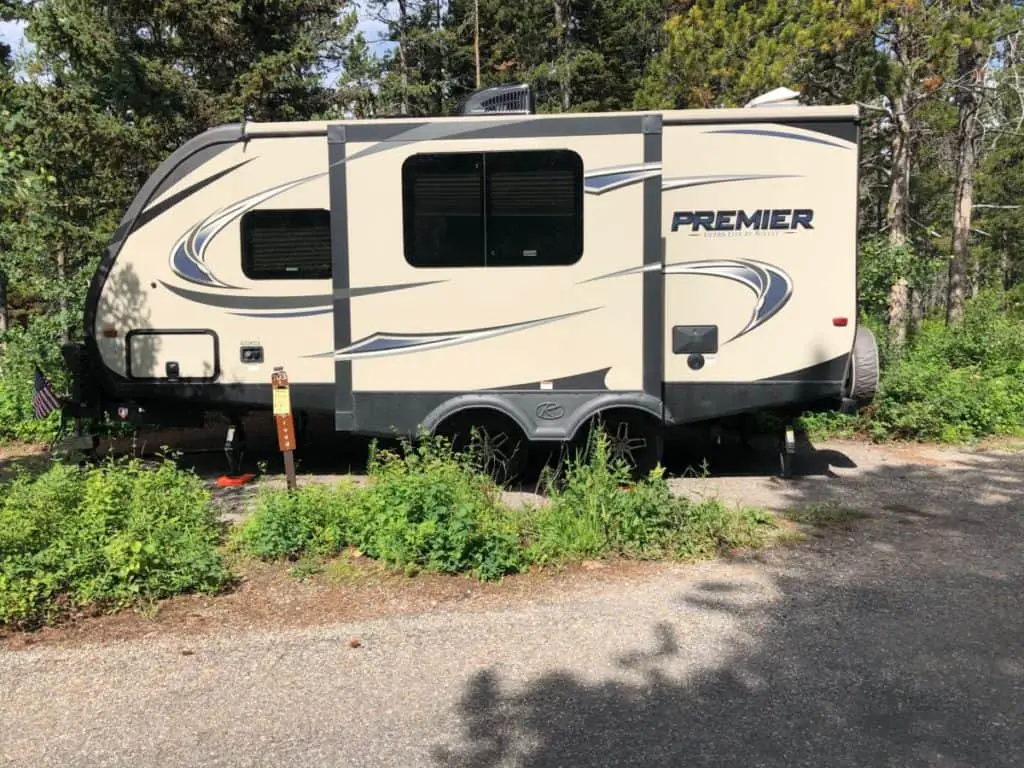
Does a Travel Trailer have a title?
Most vehicles on the road today have titles to prove ownership. Travel Trailers or RV’s are not any different.
Does a travel trailer have a title? Yes, travel trailers, RV’s, Campers, and tent trailers all will have titles. Titles are for the owners protection to prove ownership. If you financed your vehicle, your bank may hold onto the title until your loan is paid off. Titles typically are necessary for licensing your vehicle.
When buying a brand-new or used travel trailer from a dealership, it will come with a title. If you are buying a used travel trailer from an independent person, then it is best to ask for a title if they do not offer a title.
It is always a good idea to have a title because some states require a title for the travel trailer to be on the road. Also, this ensures that you did not buy a stolen travel trailer.
However, if it is a very old trailer or one that was built at home then there may not be a title. If this is the case, then you need to go to your local DMV to register and obtain a title. This process is similar to obtaining a title for a car.
The first step is to go to the DMV or go online to fill out an application. The DMV will require a copy of the bill of sale and the original title, but since you most likely do not have the original title, then you will need to provide the manufacturer’s certificate of origin.
The manufacturer’s certificate of origin (MCO) is a document stating where the travel trailer was built and by whom. This is mainly for tariff reasons. The document will state if the travel trailer was either built in the United States or not. However, if you do not have any of these documents you can still obtain a title.
Most states will allow you to have the application notarized guaranteeing you are the owner of the travel trailer or by filing a lost title application. Once this is complete, you will be able to obtain a title from the DMV. It is best to keep the title in a safe place. Once the trailer has been registered you do not need to keep the title with you. It is best to store the title in a safety deposit box or a home safe with other important documents.
Does a Travel Trailer need insurance?
In today’s day and age, it is important to have insurance on everything. A golf cart, RV, Jet Ski, motorcycle, car, etc. even if the law does not require you to. This is not only to protect other motorists but protect yourself and passengers from any liability or damages that may arise. Insurance is cheap compared to the damage that can happen with one accident.
Does a travel trailer need insurance? Travel trailers do require insurance when there is a loan on the trailer. If the travel trailer is debt-free, depending on which state you live in, you are not required to carry insurance. For your protection, it is always recommended to carry your own insurance.
Laws vary between states and be mindful of the laws as you travel. However, it is very important to carry insurance whether or not there is a loan. This protects you and your trailer from any loss. These travel trailers are expensive and an investment. You do not want to lose the money that you have put into it.
Before you look at additional insurance, it is a good idea to look at your car insurance policy first. Some car insurances will extend the liability insurance to your travel trailer since it is being towed by your vehicle. If this is the case, you do not have to carry additional insurance on the trailer. When you look at your policy, you will see liability and UM/UIM (uninsured motorist) insurance.
Most states require you to carry liability insurance, this is if you hit someone else or the trailer gets loose and hits another car. However, it is always a good idea to carry UM/UIM. This is if someone else hits you and they do not have enough liability insurance to cover the cost of all damages or they do not carry liability insurance at all.
You can use your policy for any repairs. Some may think, I am a safe driver nothing is going to happen. But what you need to think about are the other drivers on the road.
Insurance doesn’t just cover damage when towing, it will cover damage due to a tree, water, flooding, plumbing leak, as well as other accidents or theft. Make sure to consult with your insurance agent to determine what policy is right for you.
Does a Travel Trailer have a VIN?
Yes, travel trailers do have VIN numbers. VIN stands for Vehicle Identification Number. These numbers are unique to each trailer, just like a car. They are 17 digits long and each number has a specific meaning. You will need the VIN to register and obtain a title for your travel trailer.
The VIN can be located in numerous areas of the trailer. Common areas are either on the front left side of the wheel arch, inside the trailer on a cabinet door, or on the inside of the front door of the trailer.
Most of the newer models have the VINs located on the wheel arch. Normally older models, from the 1980s, have the VIN on the front door of the trailer. However, trailers from 1981 and before were not required to have VINs. So, if you have an older model you may not have a VIN on your trailer. If you would like a VIN for your vintage trailer, you can go to your local DMV to have them issue you a new number.
Here is an example of a VIN and the meaning behind each letter and number:
VIN – 7KSBX20299H561894
7KS – Manufacturer
BX – Model Type
20 – Length of the trailer
2 – Number of axles
9 – Check Digit
9 – Year it was built (there is a nationwide guide that decodes the number)
H – Where it was built (there is a nationwide guide that decodes the letter)
561894 – The trailer’s serial number
Your VIN is important for several reasons. The most important reason is for recalls. Once your travel trailer has been registered, your information and the trailer’s VIN will be in a nationwide database. You will be contacted by the manufacturer if there are any recalls on your trailer. It is important to be aware of the recalls since the trailer is on the road. You want to make sure each recall is fixed for any safety reasons.
Another reason it is very important is for licensing, titling, and when you go to sell your trailer. This will prove this is the trailer you own without question.
Does a Travel Trailer’s, RV,s and Tent Campers need a license plate?
Yes, travel trailers, RV’s, and tent trailers do need license plates. You must register them with your local DMV and then a license plate will be issued. In order to register the trailer and receive the license plate, you will need to follow a similar process as getting the title.
You will need to go to your local DMV and complete the proper paperwork. The DMV will require a copy of the bill of sale and the original title or the manufacturer’s certificate of origin. Once you pay the tax and license plate fee, the license plate will be issued.
One reason why a license plate is issued is that there are registration fees due yearly on travel trailers just like cars. The registration and license plate allow the state to keep a record of the trailers and tax them accordingly. You will need to check with your local area regarding the amount due since there is no one set price nationwide. Fees vary from state to state.
Another reason why license plates are required is that most travel trailers block the view of the license plate of the towing vehicle. The license plate must be in view for police officers to read them.
Do Travel Trailers have odometers?
No, travel trailers do not have odometers. Since travel trailers are towed behind vehicles, odometers are not installed. However, it is always a good idea to track your mileage. This way you can easily calculate when the trailer needs servicing.
Even though travel trailers don’t have a motor, like an RV, they still need servicing like any other vehicle. If anything, you want to track mileage for the tires, brakes, and bearings. The tires are most important on the trailer because they can wear out quickly.
Since there is no odometer, there are other ways to track your mileage. One way is to track the mileage on your towing vehicle. Every time you unhitch the trailer, you can write down the mileage in a book to keep track.
A second way is to install an odometer on the trailer yourself. There is a device called a hubodometer that can attach to the axle or the hub of the tire on the trailer. The hubodometer easily calculates the mileage. Stemco hubodometer is the one that I recommend. It is guaranteed to last 500,000 miles. It easily attaches to the hubcap of the tire and is extremely durable.
Lastly, there are several Apps for smartphones that allow you to track mileage. This would be another option, similar to the odometer in the towing vehicle. You can use the App while traveling, then stop the App once the trailer has been parked.
One feature I liked about the Apps is you do not need to carry around a book to keep track of the mileage. There is a feature in the App that will allow you to keep all of the mileage information in the App.
The App that I found to be the most helpful is the Mileage Tracker by Driversnote. I found this App to be the easiest to use and offered many features. The best feature is the way it keeps track of the mileage. It keeps the mileage information on an easy-to-read report that can be converted to Word, a PDF, or Google Sheets. These documents can be transferred to your computer or printed for your records.
Happy Camping!
Be the first to be notified about FREE tips, hints, coupon codes, and email-exclusive information. All for FREE!

